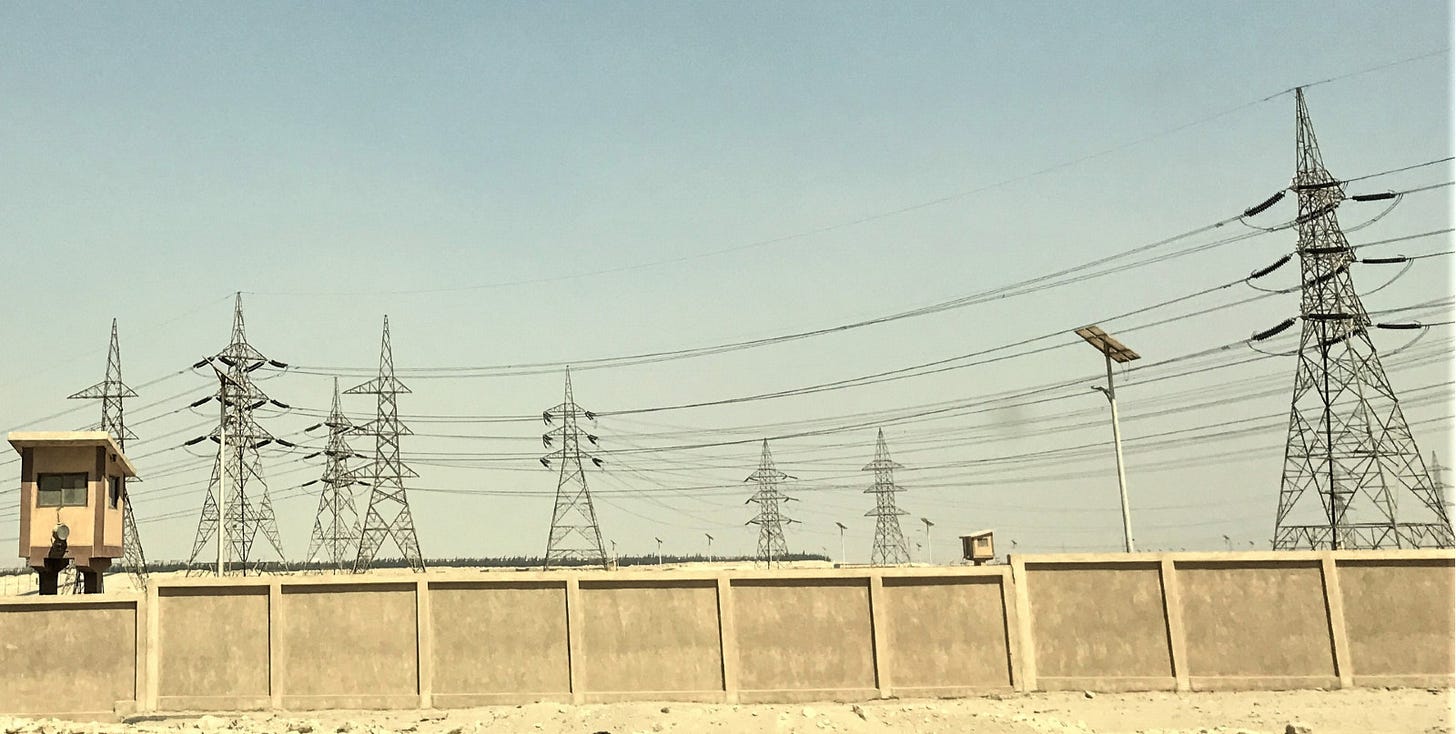Egypt to Power Netanyahu’s 'Gaza 2035' with Israeli Gas
By positioning Egypt as a critical partner in energy and connectivity, Israel seeks to incentivise Cairo’s acquiescence to its regional vision.
Egypt is set to export electricity to Iraq, Syria, and Lebanon through a new maritime electricity pipeline running via Jordan, scheduled for completion by 2029. The electricity will be generated using gas supplied by Israel under the recent $35 billion Egypt–Israel agreement. Drawing on the long-dormant “Arab Electricity Interconnection Network", Cairo plans to develop a second undersea cable to Jordan to facilitate exports. However, the gas deal has triggered backlash from the Egyptian street, including masked threats and blackmail attempts against senior officials in President Abdel Fattah el-Sisi’s cabinet. These threats, combined with the unrealistic nature of the projects, suggest the announcements are more about public relations than substantive outcomes.
‘Arab Forces’ for Israel’s Vision
Central to Egypt’s plan is a 2,000-megawatt undersea cable linking Taba in the Sinai Peninsula to Jordan via the Gulf of Aqaba, a significant upgrade from the existing 250 MW capacity. This ambitious project reflects Egypt’s strategic aim to establish itself as a regional energy hub, leveraging Israeli gas supplies secured through the $35 billion deal. The initiative partially revives the Arab Electricity Interconnection Network, a historical framework for regional energy cooperation also known as the Pan-Arab Electricity Market (PAEM).
Parallel to these developments, Israeli Prime Minister Benjamin Netanyahu has increasingly emphasised a vision for Gaza’s future governance, advocating for a multinational cohort of Arab nations to administer the territory on a ‘temporary’ basis. In a recent Fox News interview, Netanyahu articulated this strategy, underscoring the involvement of “Arab forces” as a cornerstone of Israel’s ‘Gaza 2035’ plan, first outlined in 2024. This plan envisions a restructured Gaza under a cooperative regional framework, with Arab nations—most likely Gulf Cooperation Council (GCC) countries —taking a leading role in its interim governance.
The concept of Arab forces overseeing Gaza strategically integrates Israel into the region’s existential fabric through energy and infrastructure cooperation. Egypt’s role is pivotal. Recent high-level engagements, such as President el-Sisi’s meeting with Saudi Arabia’s Crown Prince Mohammed bin Salman in NEOM, alongside the successful installation of a strategic data cable between Egypt and Jordan, reinforce Cairo’s trajectory as a regional energy and connectivity hub. These developments align with Israel’s efforts to secure Egypt’s support for managing Gaza’s refugee challenges and advancing the ‘Gaza 2035’ framework.
Public Opposition & Practical Challenges
Nonetheless, the Israeli strategy is not without opposition. Widespread public discontent in Egypt over the recent Israeli gas deal has intensified, with growing demands for Cairo to abandon the agreement. Public anger has escalated to a critical point, with by a masked citizen releasing a compromising video allegedly implicating the Interior Minister’s assistant, accompanied by threats to expose further officials unless the deal is rescinded. In addition to highlighting deep-seated public opposition, this backlash poses significant political risks for President el-Sisi’s administration.
More practically, the project’s feasibility remains highly questionable. The necessary infrastructure, including the proposed 2,000-megawatt undersea cable from Taba to Jordan, is yet to be developed. Financing has not been secured, with potential investors deterred by Israel’s increasingly militarised regional strategy and the associated geopolitical instability. Consequently, large-scale electricity exports remain nonviable until funding is confirmed, infrastructure is constructed, and regional stability is achieved; all milestones which are too far off.




